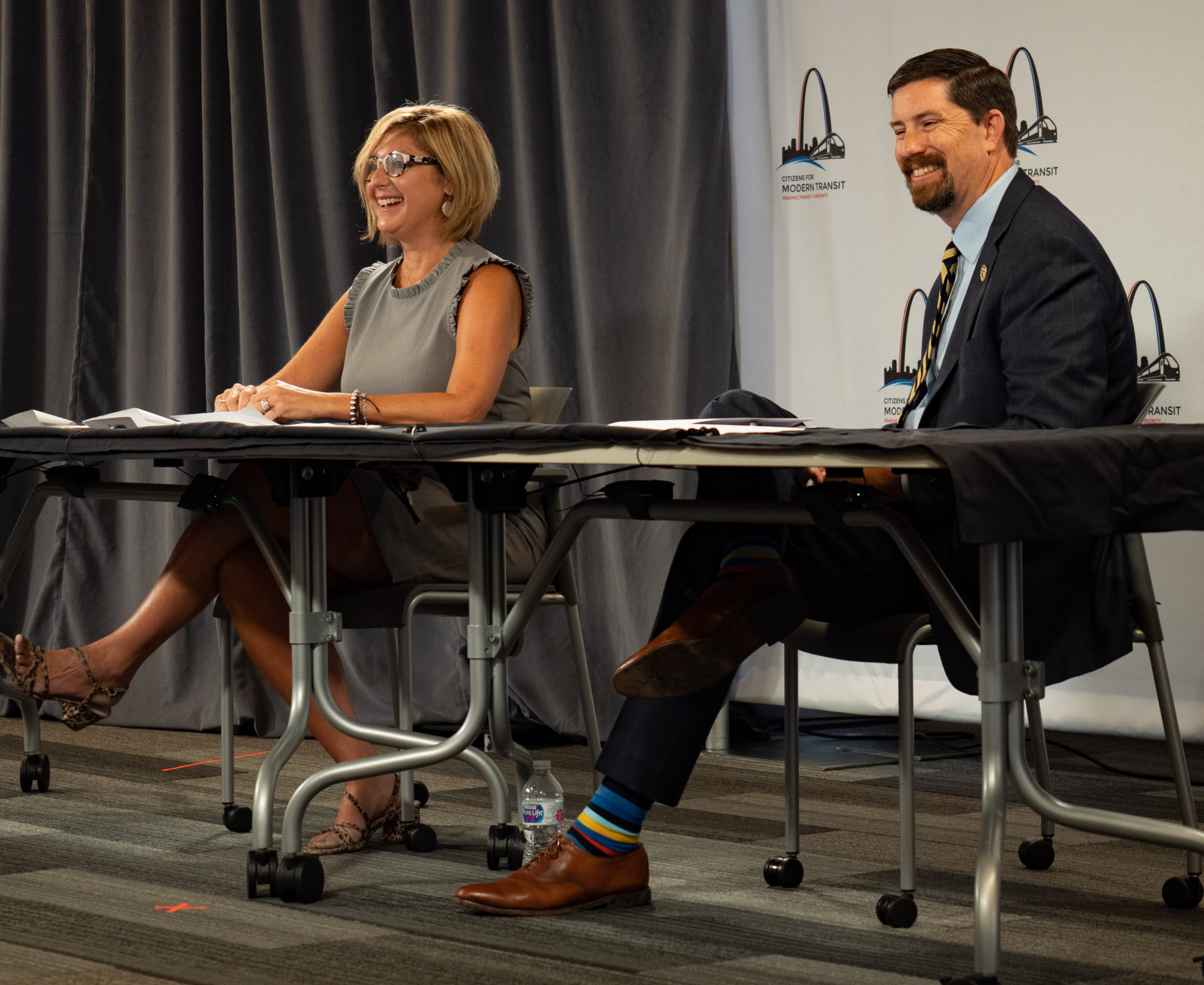Just after she graduated from college, armed with business and marketing degrees, Kim Cella was approached with a question: Can you help us figure out how we need to communicate about public transit? Now, nearly 30 years later, Cella is still answering that question through her work as the executive director of Citizens for Modern Transit.
Cella’s commitment to transit is evident through the work she’s been able to do with Citizens for Modern Transit (CMT) — as well as at the Missouri Public Transit Association, which she has led for the last five years through a management contract with CMT. The advocacy organization has been able to secure more than $10 million in federal funding, led a feasibility study that laid the groundwork for the creation of Cortex MetroLink Station in St. Louis, and transformed bus and light rail stations.

Cella began her work at CMT as a program associate, climbing her way up through the organization. She helped CMT secure grants, thus growing the work it could do.
“No day here is ever the same day. Transit is a continually changing environment so every day we’re doing new and different things,” Cella said in an interview. “The impact of transit is so significant — whether you ride it or not, you’re going to come in contact with it in Missouri.”
As Cella looks to the future of public transit in Missouri, she noted the importance of local matches to help providers — even with an influx in federal money. The new infrastructure bill would increase transit funding in the first year by about 30 percent, and providers would not be able to keep up without local matches.
And like other sectors of the workforce, Cella noted there is a shortage of transit operators in Missouri which can affect service. She said CMT will work to promote these jobs as people look to get back to work following the pandemic.
“They have great benefits and are an opportunity to work within the community. We’re going to work on that so this operator shortage doesn’t impact the service we’re seeing in Missouri anymore,” she said.
Additionally, Cella said CMT is paying attention to the debate over whether to allow concealed carry on public transit during the legislative session. She said CMT is against the proposals because it could negatively impact ridership and the ability for providers to use certain private contracts or federal funds.
While Cella’s passion for transit is unbridled, she didn’t know she was going to work in this field. She credits her brother, who was paralyzed in college, for being her inspiration.
“It was really evident to me individuals really have to have the ability for independent access to transportation,” Cella said. “My brother had his family to drive him around and get him where he needed to go, but others don’t have that.”
“We need to ensure the success of public transit for everyone. And the impact then carries over for the bottom line for this state,” she added. “Access to jobs, health care, and education is critical to the success of Missouri — and not just in urban areas. … We have to look at access, and we have to look at driving jobs, and transit is one of the largest employers in the state.”
A mom to two teenagers, Cella is from St. Louis where she now lives and enjoys running on its trail systems.
Since its creation in 1985, CMT has worked to bring light rail to St. Louis and ensure the region has access to an affordable, convenient, and safe public transportation system. CMT also works to secure federal funds for transit projects, advocate and supplement transit systems, and spearhead feasibility and economic studies.

Kaitlyn Schallhorn was the editor in chief of The Missouri Times from 2020-2022. She joined the newspaper in early 2019 after working as a reporter for Fox News in New York City.
Throughout her career, Kaitlyn has covered political campaigns across the U.S., including the 2016 presidential election, and humanitarian aid efforts in Africa and the Middle East.
She is a native of Missouri who studied journalism at Winthrop University in South Carolina. She is also an alumna of the National Journalism Center in Washington, D.C.
Contact Kaitlyn at kaitlyn@themissouritimes.com.



















